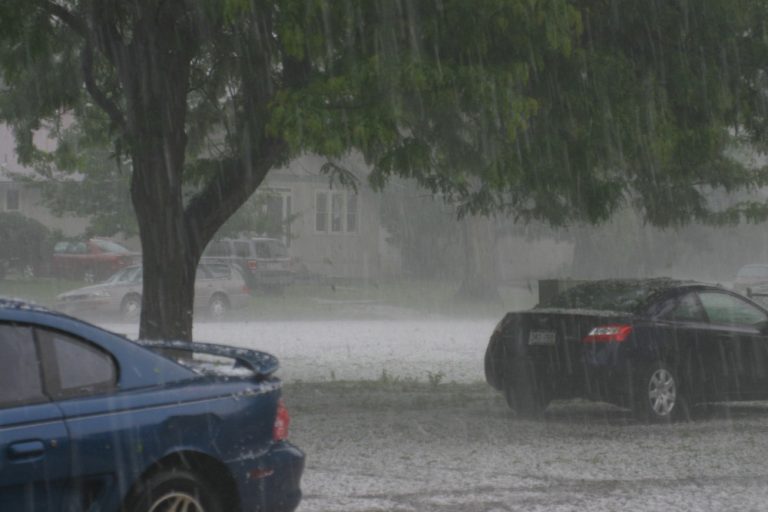Prior to turning to any level of government for assistance after an extreme weather event, Albertans should review their own insurance policies for houses, automobiles, or crops.
Not all extreme weather events are likely to be covered by all types of insurance, and the extent of coverage can vary according to the plans and particular insurance providers homeowners select. In some cases such as automobiles, Canadian law requires insurance, whereas in other cases such as homes, it does not. The Insurance Bureau of Canada is a good resource for readers wishing to learn more about insurance in Canada.
Homeowners can typically access a range of insurance options to protect their residences and possessions. The nature of extreme weather events covered will vary according to the insurer and level of coverage selected, ranging from basic to comprehensive coverage.
For example, spills from internal plumbing and hail/snow impacts to the exterior of a house can typically be insured under basic coverage; however, sewer backups and damage to external amenities, such as swimming pools, may require an additional policy to receive coverage [1].
In the past, damage caused by flooding was not insured in Alberta, although there are examples of this being offered in some other jurisdictions (see a previous blog post for more information on the history of Alberta flood insurance up until 2015).
Since the 2013 flood, insurance companies began offering flooding insurance policies within Alberta, for both overland and urban flooding [2]. Because these offerings are unregulated by any level of government or overarching body, the terms can vary widely by location and insurer, even between neighbourhoods.
Although the Government of Alberta has produced some flood maps, they are not available for every community in Alberta, nor are they universally referenced by the insurance industry. Therefore, each insurance company develops their policies based on internal flood risk assessments and other metrics. The goal for all policies is to share risk over many policy holders; therefore, homes at the highest risk of flooding still may not covered by overland flooding policies, since the risk to these houses is deemed to be too high [3].
While it may be possible to recoup losses after a flood using a flood policy in some cases, homeowners should carefully review their options to understand the limits of their existing or desired insurance.
Unlike snow, hail, sewer, and flooding damage, there is no consistently available insurance for homeowners against drought in Alberta. This is due in large part to the apparent absence of, and low costs associated with, impacts to houses associated with droughts.
Although automobile owners are legally required to have basic collision insurance in Canada, additional coverage is not mandated; therefore, a myriad of optional offerings exist which owners must decide between.
For extreme weather events, such as hail [4], snow damage, and flooding [5], comprehensive coverage is generally available, but would need to be purchased on top of basic coverage. An extensive list of damages can receive coverage including exterior dents, electrical issues, interior water damage, rusting, air bag damage, and brake line issues. Any number of these problems can arise during an event such as those previously listed.
As with houses, there is not currently an offering for automobile drought coverage, due to the lack of impact to automobiles associated with droughts.

Extended insurance coverage can be purchased for a wide variety of personal items such a jewellery or art.
Depending on the nature of insurance covering homeowners, these items may or may not be covered for extreme weather events, especially flooding. Typically, personal articles are insured against loss and theft, rather than an extreme weather event. Those interested in protecting valuable personal items in the event of extreme weather should consult with their insurance provider.
A wide range of water-related extreme weather events can impact agricultural production in Alberta including hail, snow, unseasonable frost, excessive rain/moisture, and drought [7].
Farmers can purchase insurance from the Agriculture Financial Services Corporation to protect against these phenomena and their potential impacts on farm production, such as the inability to plant in the spring and/or harvest in the fall, as well as hail damage. Reductions in annual crop yields, as could be caused by a drought, can also be covered [8]. Coverage can vary by crop type, extreme weather event, and desired coverage level.
Share this Post:
We provide Canadian educational resources on water practices to promote conservation and sustainability. Our team crafts current and relevant content, while encouraging feedback and engagement.
The Canada WaterPortal is a registered charity, #807121876RR0001
We recognize and respect the sovereignty of the Indigenous Peoples and communities on whose land our work takes place.
© 2025 All Rights Reserved.